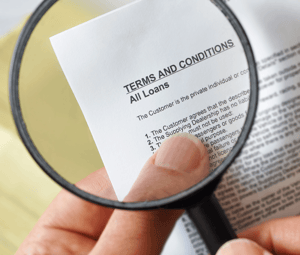If you're planning on buying your first home in Edmonton, congratulations! You're about to enter the rewarding world of homeownership. Home buyer education is a vital aspect of the ownership process; there are certainly many people who can help explain some of the most important steps of the process, but you should also take the time to learn on your own.
On that note, here's a small sampling of the terminology you may come across as you move along the home buying journey.
1 . Affordability
This is the most important aspect of the entire home buying process, and it boils down to how much house you can afford. Although your real estate agent will mention housing affordability, your mortgage broker will explain it in great detail for the purpose of calculating your monthly payments.
A number of factors are considered in this calculation: income, fixed debt payments such as car loans, credit card debt, condominium fees, taxes, and others. Ideally, the mortgage principal owed along with the interest, taxes, and heating expenses should not exceed 40 percent of income; however, this may depend on whether maintenance expenses are included.
2 . Agreement of Purchase and Sale
This is the written contract that your real estate agent will present on behalf of the seller, or if you're building new, your builder will finalize the agreement with you. Terms and conditions can be established and negotiated prior to executing this contract, which may also feature contingencies that must be satisfied at closing.
3. Amortization
This refers to the term of the mortgage and the calculations made by lenders so that you can make the same monthly payment amount over the life of the loan. It's a good idea to discuss this with your lender, and perhaps even consider some ways to pay off your mortgage faster.
 4. Term
4. Term
This is the length of time the mortgage will be in effect. Depending on the type of mortgage you qualify for, the initial term may last a few months or several years; you can either plan to pay the remaining balance in full or renegotiate another term.
5. Gross Debt Service Ratio
This refers to the sum of payments that must be made to cover the principal, interest, taxes, and heating expenses each month. The GDS ratio is crucial in determining how much house you can afford in relation to your household income and your outstanding debts.
6. Total Debt Service Ratio
This calculation is higher than the gross debt service ratio, and it is evaluated by mortgage brokers prior to approving a mortgage loan. The total debt service ratio includes your housing expenses, including property taxes, in addition to your car payments and credit card interest owed. Your credit score matters, because the maximum total debt ratio that most Canadian mortgage lenders will consider is typically 40 percent.
7. Fixed-Rate Mortgage
There are different types of mortgages, and a fixed-rate mortgage means the loan won't change. With that, you can expect your monthly mortgage payment to remain the same over the years.
8. Adjustable-Rate Mortgage
An adjustable-rate mortgage, however, is as it states–adjustable. Since other factors such as interest rates can rise and fall, choosing an adjustable-rate mortgage may allow you to start at a very low-interest rate, but this will adjust over time according to an interest index.
 9. High Ratio Mortgage
9. High Ratio Mortgage
If you need to borrow an amount higher than 80 percent of what the home is worth, you will be offered a high ratio mortgage that needs to be insured by the Canadian Mortgage and Housing Corporation or a private insurance company. You will pay a little more each month until your property value appreciates enough to renegotiate your mortgage.
10. Canada Mortgage and Housing Corporation
As the national authority on housing matters, the CMHC is committed to helping first-time home buyers with free and valuable advice. The Edmonton regional office of the CMCH is located at 10355 Jasper Avenue, just down the road from Beaver Hills House Park. If you would like to learn more about real estate acquisition and mortgage matters, this is a great resource.
11. Service Charges
Whenever you move into a new home, you can expect to pay extra costs such as gas, hydro, landline telephone service, cable television, and broadband internet. Service charges do not typically appear on pre-sale checklists or closing statements; these are housing aspects that you will need to handle on your own.
12. Zoning
These are regulations set by provincial and municipal governments in terms of how properties should be used. Urban planners and city officials are responsible for zoning regulations, which may preclude you from operating a full-service auto shop from your house; however, you may be allowed to set up a small home office if you are self-employed or need to establish a remote connection to your office.
As a first-time home buyer, educating yourself on housing-related terms will benefit you now and in the future. Here, we've briefly covered some basic definitions, but if you see anything you don't understand in the various purchase and mortgage documents you come across, be sure to ask the professional you're dealing with to explain further. The more you know, the more confident you'll feel about your home buying decisions.




